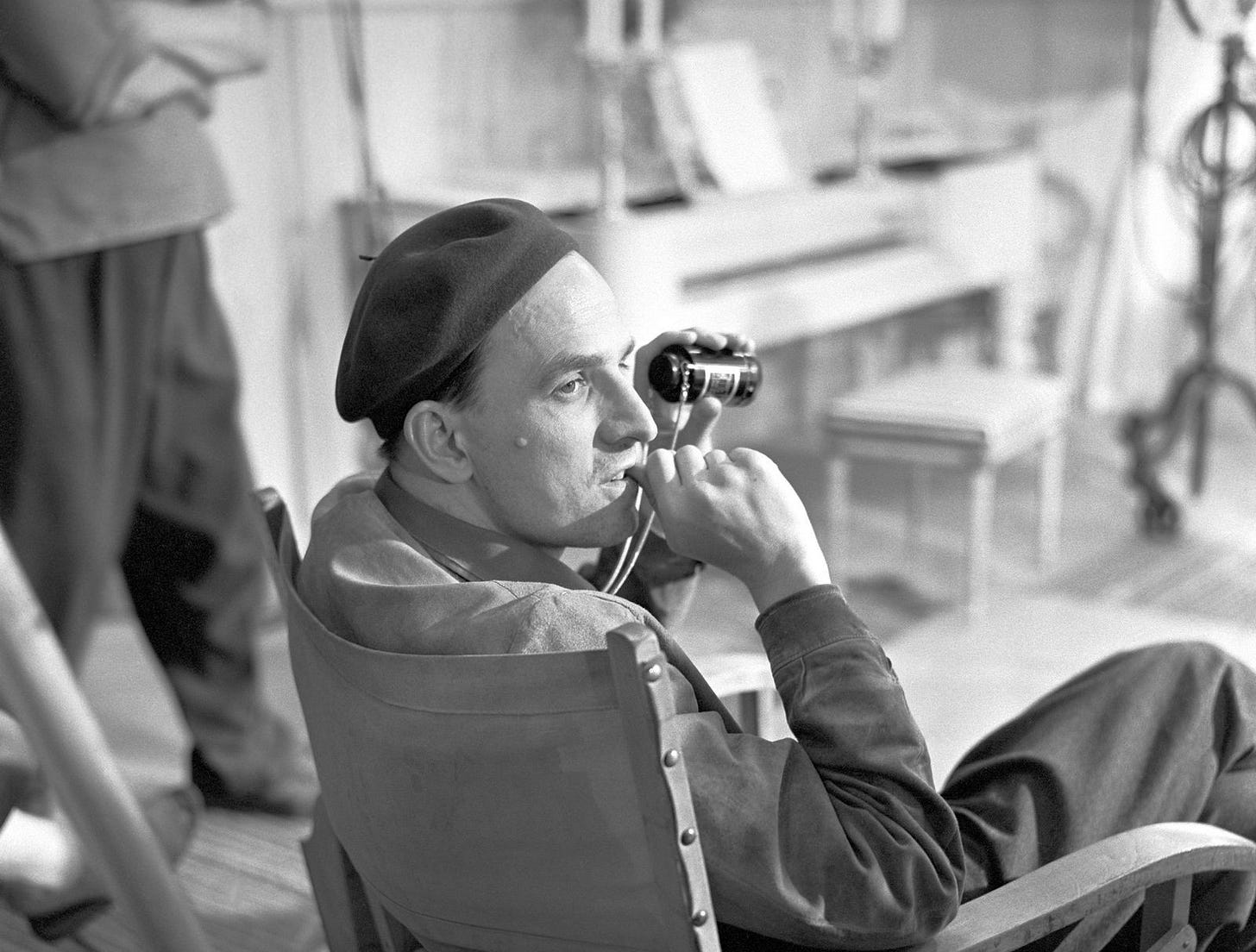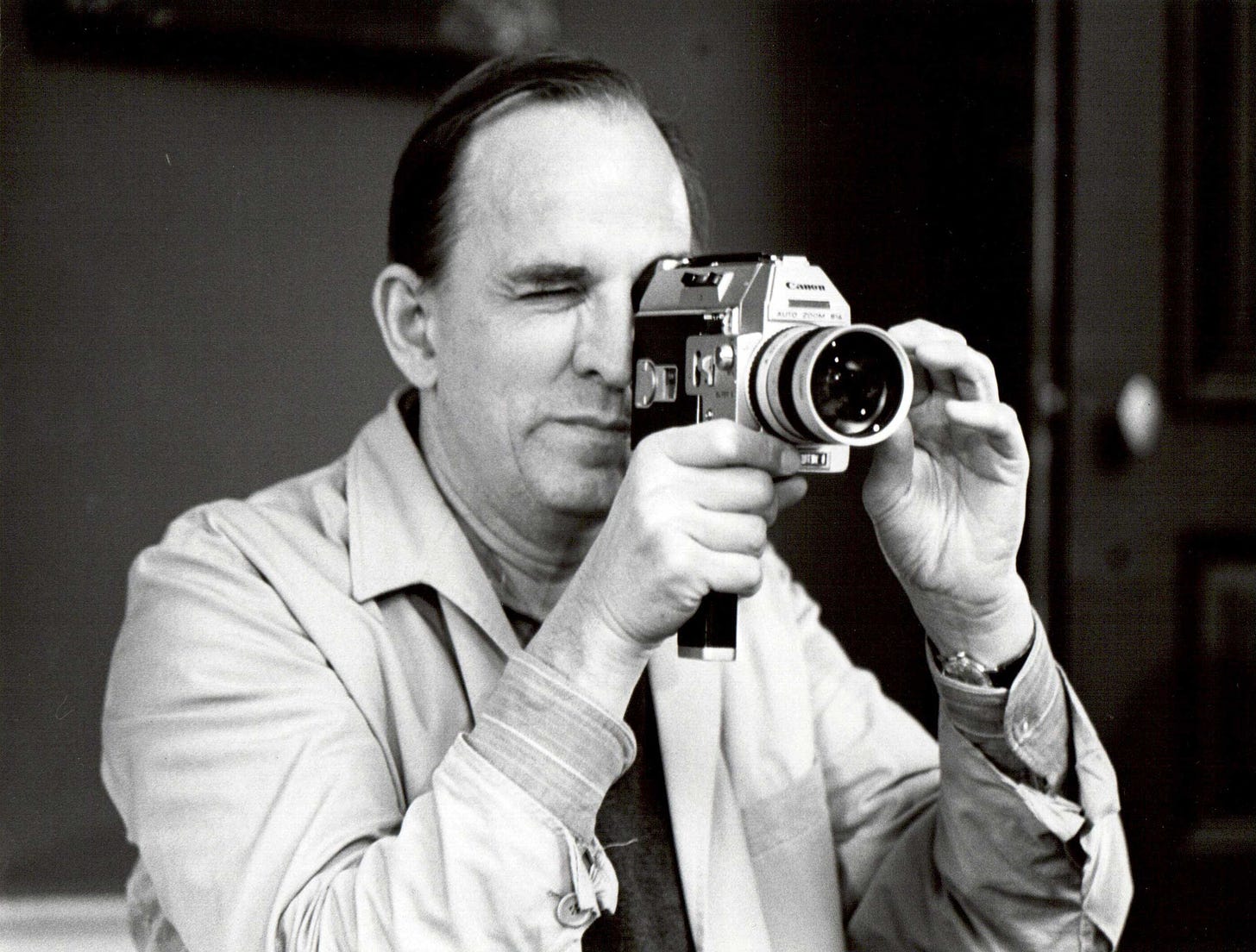Ernst Ingmar Bergman, who was born on July 18, 1918, and died on July 30, 2007, is widely regarded as the greatest filmmaker of all time. With 48 feature-length films (44 narrative features and 4 documentaries), the Swedish auteur transformed what we know as cinema. Bergman's cinematic style was personal and contemplative, with long shots that focused on faces like no other.
I was in college when I first became aware of Bergman's work after coming across a cinema book that mentioned his name. Coincidentally, the film instructor screened one of Bergman's films, The Seventh Seal (1957), later the same month, which was my first time seeing it.
Bergman's work influenced me with Wild Strawberries (1957), Persona (1966), and, subsequently, the exquisite Cries and Whispers (1972). I appreciate an artist like Bergman, but I'm still behind on catching up with the rest of his cinematic work. But I never get tired of reading or hearing about Bergman, whether it's about his work or himself.
Aside from Bergman's distinct pace, I'm fascinated by how he captured black and white. More interestingly, I am inspired when I watch how he moves his camera or when he decides to compose a shot long enough to catch only his actors' faces and gazes. It is almost cliché to say all of this, because any cinephile would probably say the same thing, yet it is difficult to overlook the obvious.
What I enjoy most about films in general is when the atmosphere is given the opportunity to become a character or even a theme, either directly or indirectly. The atmosphere is really crucial. It shapes the film and even enhances the actors' performances. Bergman undoubtedly understood this. And while Bergman's films are always poetic, he does not shy away from showing some realism.
When we focus solely on the intrinsic meanings of Bergman's films, the layers become deeper, and the more we dig, the more hidden messages we discover. I must point out that Bergman never made a film that could only be seen once. He rarely did interviews, but I'm confident that if we had asked him if his films are primarily intended for him or for others, he would have responded they are for him. That's how much he respected himself.
Here are some of my favorite quotes spoken by the legend himself. They always motivate me, no matter how many times I read them. However, they also motivate me when I share them with the rest of his admirers.
“I make all my decisions on intuition. But then, I must know why I made that decision. I throw a spear into the darkness. That is intuition. Then I must send an army into the darkness to find the spear. That is intellect.”
“Film as dream, film as music. No art passes our conscience in the way film does and goes directly to our feelings, deep down into the dark rooms of our souls.”
“My discovery of Tarkovsky's first film was like a miracle. Suddenly, I found myself standing at the door of a room the keys of which had, until then, never been given to me. It was a room I had always wanted to enter and where he was moving freely and fully at ease.”
“No other art medium—neither painting nor poetry—can communicate the specific quality of the dream as well as the film can. When the lights go down in the cinema and this white shining point opens up for us, our gaze stops flitting hither and thither, settles, and becomes quite steady. We just sit there, letting the images flow out over us. Our will ceases to function. We lose our ability to sort things out and fix them in their proper places. We're drawn into a course of events—we're participants in a dream. And manufacturing dreams—that's a juicy business.”
“There are moments when I can wander through my childhood's landscape, through rooms long ago, remember how they were furnished, where the pictures hung on the walls, and the way the light fell. It's like a film—little scraps of a film, which I set running and which I can reconstruct to the last detail—except their smell.”
“When film is not a document, it is a dream. That is why Tarkovsky is the greatest of them all. He moves with such naturalness in the room of dreams. He doesn't explain. What should he explain anyhow? He is a spectator, capable of staging his visions in the most unwieldy but, in a way, the most willing of media. All my life I have hammered on the doors of the rooms in which he moves so naturally. Only a few times have I managed to creep inside. Most of my conscious efforts have ended in embarrassing failure—The Serpent's Egg, The Touch, Face to Face, and so on.”
If you're still reading, which I'm sure you are, which of the quotes I've shared is your favorite? Please share in the comments section below. Also, if you could share any quotes that I haven't seen before. And, most importantly, what is your favorite Ingmar Bergman film?
If not, life goes on.
Oh, here's a captivating interview I found with Bergman and the cast of Persona. Enjoy!







